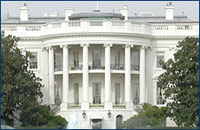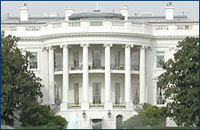Priorities for the Next President: An Urgent, Measured Innovation Policy (Part II)
 So, to take up the question I asked yesterday, what does “measured urgency” look like? I would offer a few suggestions. First, an independent commission needs to undertake legislative revision of the Patent Act. The Patent Act of 1952 was an incredibly well-written, concise act. Current legislation has attempted to graft new procedures onto the Patent Act, which would have the consequence of creating a deeply incoherent act. The new President should appoint a commission of fairly neutral persons to sit down and decide what will become the Patent Act of 2009, an act that will serve as the framework for the next 50 years of patent law. Such an act should take into account the significant changes that have impacted the patent regime in the 21st century: the increase in agencies regulating the Patent Act, such as the ITC and the FDA; the need to change the role of the USPTO; and the increasing harmonization of patent law in the international environment. The commission would also increase the legitimacy of the process. Current patent reform is simply not working. Previous patent reform has often been seen as another cynical attempt by powerful chairpersons to rewrite patent law on behalf of their most powerful donors. These deeply cynical efforts have been accompanied by a failure to hold transparent and representative hearings. A commission would have the benefit of having the ability to channel interest group action in a positive way through open hearings and submitted comments. Such a commission would also have the ability to stay above what has proven to be a rugby-like scrum on the part of lobbyists to get the narrow best interest for their clients. I am all for an active and healthy self-interest on the part of the interest groups, but there must be a productive way to channel those interests in a way that serves patent law better.
So, to take up the question I asked yesterday, what does “measured urgency” look like? I would offer a few suggestions. First, an independent commission needs to undertake legislative revision of the Patent Act. The Patent Act of 1952 was an incredibly well-written, concise act. Current legislation has attempted to graft new procedures onto the Patent Act, which would have the consequence of creating a deeply incoherent act. The new President should appoint a commission of fairly neutral persons to sit down and decide what will become the Patent Act of 2009, an act that will serve as the framework for the next 50 years of patent law. Such an act should take into account the significant changes that have impacted the patent regime in the 21st century: the increase in agencies regulating the Patent Act, such as the ITC and the FDA; the need to change the role of the USPTO; and the increasing harmonization of patent law in the international environment. The commission would also increase the legitimacy of the process. Current patent reform is simply not working. Previous patent reform has often been seen as another cynical attempt by powerful chairpersons to rewrite patent law on behalf of their most powerful donors. These deeply cynical efforts have been accompanied by a failure to hold transparent and representative hearings. A commission would have the benefit of having the ability to channel interest group action in a positive way through open hearings and submitted comments. Such a commission would also have the ability to stay above what has proven to be a rugby-like scrum on the part of lobbyists to get the narrow best interest for their clients. I am all for an active and healthy self-interest on the part of the interest groups, but there must be a productive way to channel those interests in a way that serves patent law better.

